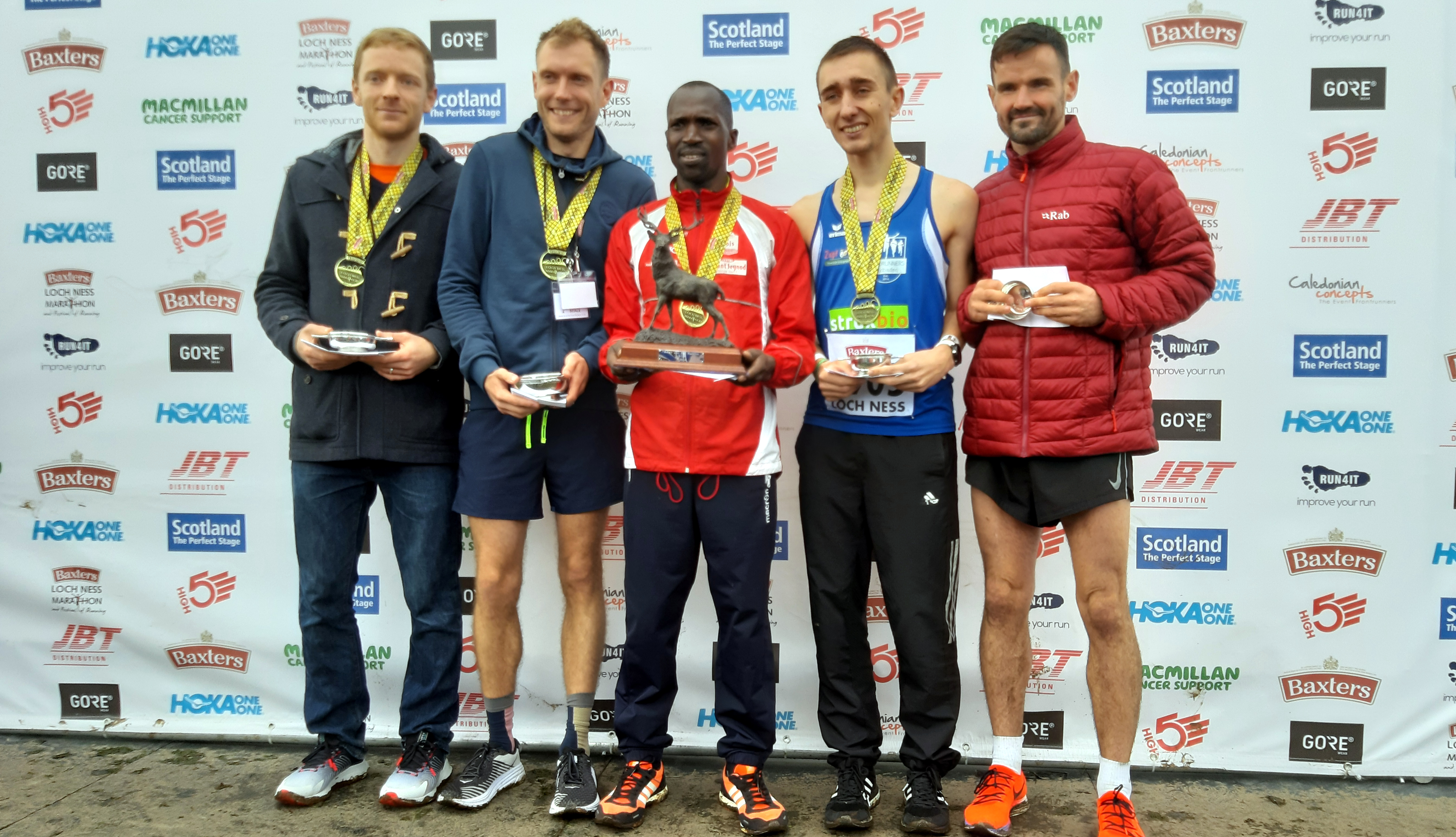Three years after our start at the Loch Ness Marathon 2016, the race through the Scottish Highlands was waiting again. Before the race started at 10:00 a.m., the approximately 4,000 runners were brought to the start from Inverness, where the finish was waiting later. This took place in the middle of nature. As in 2016, the wait for the start was a bit long, especially as the strong wind made the wait a cold affair.
Shortly before 10:00 a.m. local time, however, the time had come: three years after the Loch Ness Marathon 2016, in which I improved my best time by about seven minutes to 2:43:46 hours and finished eighth overall, I was once again on the start line of one of my absolute favourite races. Instead of the applause of numerous spectators - no, apart from a few Highland Cows no one had come to this place somewhere in the Scottish Highlands on this Sunday morning - we started the first metres accompanied by the sounds of some bagpipes.
From the start we headed towards Loch Ness, the lake in which, according to legend, the monster Nessie lives. This was reached after about a third of the race distance. By then, the field should have separated so much, especially at the front, that a nature marathon with very few spectators would turn into a nature marathon with very few spectators and other airmen that you see at least a few hundred metres in front of or behind you. Did that surprise me? No, not at all, so I just ran, metre by metre, kilometre by kilometre.
Despite the headwind, which I had not experienced in 2016 at the same place, I started the race offensively as planned and ran the first half as fast as I had never run a marathon before. After 21.1 fast but also intense kilometres, I started the second half in third place overall. I knew what was waiting for me in the remaining kilometres. Just two to three long and at this point in the race very demanding climbs beyond the 30-kilometre mark forced me to reduce the pace a bit, as expected and planned. Nevertheless, it was always about improving my marathon best time, which I had run at the end of October 2017. In the last kilometres it was therefore important to give it my all. That's what I did and finished in 2:39:16 hours, more than two minutes ahead of my best time of almost two years.
Intensive weeks and months of training, full of extracurricular challenges due to writing my Master's thesis and moving to Scotland, had paid off. I had hoped that this would work out, especially after my best times over five kilometres, ten kilometres and the half marathon distance. However, in addition to my first time under 2:40 hours, I also finished fourth overall in what was already my 19th marathon. Two English runners, who I had been ahead of for a large part of the race, were a little faster at the end, as well as a Kenyan, who underlined his ambition to win already in the first kilometres and outpaced all the other starters. Time and place both matched that day in Inverness, so I was able to return to Edinburgh happy and satisfied.



